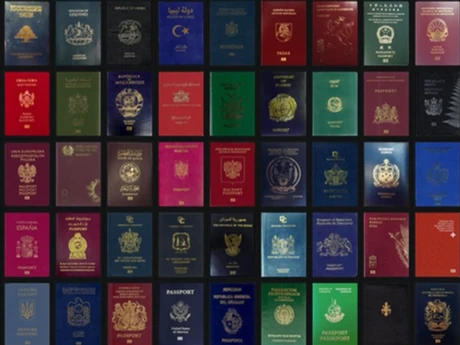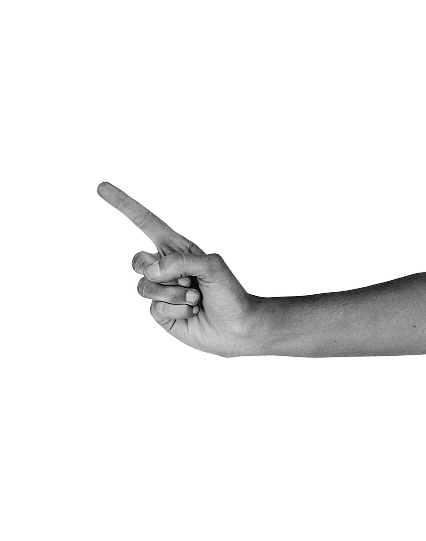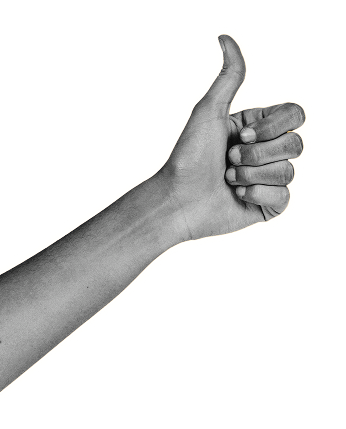
Cameroonian Nkiacha Atemnkeng’s visa application was rejected three times despite having been offered a prestigious international literary residency in America. Atemnkenge wanted to attend the 2017 Arti Omi International Writer’s Residency in New York to make literary connections and experience a different country. Despite being a published writer he was rejected on the basis that restrictions had become “really tight”, and he could travel to the United States only when he became an “accomplished writer”. The reason he was given for the next rejection was that “It is very difficult to travel to the United States, unless you have travelled out of Africa before.”
During the COP26 summit in Glasgow this year, young people from the poorest countries, worst affected by climate change faced significant visa issues. The number of accredited delegates was reduced, and only those with official acknowledgement from the United Nations Framework Convention on Climate Change (UNFCCC) could access the UK’s streamlined COP26 visa process. 6 Afghan delegates were denied visas for failing to gain an official acknowledgement from the UNFCC, despite fulfilling all the visa requirements. Even those who received the required acknowledgment still faced significant hurdles.
Speaking on the difficulty of the visa process, Blair Melville, a lawyer working with the Visa Support Service set up by the civil society COP26 Coalition, notes that “You are looking at an 18-to-20-page document with extensive and often confusing and conflicting questions, going into your family’s history and financial background”. Further, the ‘genuine visitor requirement’ demands evidence that the applicant has sufficient ties to their home country. However, this is difficult for young activists with no spouses, children and sometimes jobs to prove.
Meanwhile, people with passports from countries like the US, UK, Japan, and Singapore can travel the world with very few restrictions. They can easily experience different places and cultures and are completely oblivious to the struggles of those on the other side or at least never have to experience it- the endless application questions, the extortionate fees and the anxiety-inducing waiting.
Evidently, passports define those that get to experience the world and those who don’t. It reinforces a hierarchy of access based on nationality. Thus, people’s fates are in the hands of a capricious and arbitrary system that is inherently biassed against them.
The all-party parliamentary group (APPG) for Africa found that 27% of African visa requests made in the two years to September 2018 were refused, compared to the overall refusal rate of 12%. For Middle Eastern and Asian applicants the figure was 11%, while those from North America stood at 4%. In the UK, immigration policing is portrayed as a necessary response to ‘illegal migrant’, or ‘asylum seeker’ ‘job stealer’. However, such logic simply conceals racism as opposed to expelling it.
This injustice recently came to light when campaigners, Justice and Equality being one of them, successfully challenged the Home Office’s biassed visa streaming algorithm. Since 2015, Home Office algorithm has used a traffic-light system to grade every entry visa application to the UK. The tool uses a red, amber, or green risk rating to applicants. Once assigned by the algorithm, this rating is essentially the deciding factor in the outcome of the visa application. This algorithm purposefully discriminated based on nationality. Applications made by people holding ‘suspect’ nationalities received a higher risk score. This system was only scrapped in 2020. Thus, unlike citizens of Singapore, Canada, or the EU, who are mostly allowed to travel visa free, or have less invasive requirements, those who come from conflict or developing countries are significantly impacted by discriminatory visa requirements and decisions.
Entrenched biassed and systematic racism diverts life plans, separates families, and limits people’s life options, and all for what?
Travel visa requirements are generally recognised as a necessary means to achieve regular migration, ensure security, and allow potential economic benefits to countries. However, visas do very little to achieve this. Western visa regimes, created after the end of the British Empire have always been about limiting freedom of movement, and cementing the privilege of Westerners for all economic, social, and political opportunity.
Visa regimes are inherently racist and resemble the colonial ideals of those who belong and those who do not. People from Global South countries are subjected to such stringent visa requirements. It has been argued that the practices of Western migration frameworks and the justifications for these mechanisms are like those of the South Africa apartheid system. This can be seen in language such as preserving ‘British Values’. It is also evident in the desire to regulate population movement to control immigrant’s access to employment, housing, education and more.
When it is considered beneficial, governments open their arms to migrants, this can be seen with the Windrush Generation, or even more recently with the British government offering 3 month work visas to foreign truck drivers due to the shortage faced in the UK. A shortage which was caused by the hostile attitude towards migrants. However, the moment immigrants are not needed, restrictions are tightened, and tremendous obstacles are set to gain access. This may be fair if there ever were a time where regular migration and tourism were not good for an economy. In the U.K, the lie that migrants steal jobs has been cast out by the results of Brexit and COVID-19. Yet, people still hold on to this idea that borders, as they are currently set up and controlled, do more good than harm.
This is not to mention that the reason many people choose to migrate is due to situations in their home countries which the West directly played a role in. When the British arrived in India, it was one of the richest countries in the world, but it left it in the opposite state. Britain effectively stole an estimated $45 trillion from India over 173 years of colonial rule. After Independence, in 1947, Britain decided to split India into India, Pakistan and Bangladesh. The partition created further divides as it was drawn on religious lines, meaning that people who were on the wrong sides had to flee and rebuild lives elsewhere. However, visa regimes fail to recognise this. It is a broken and racist system that means that your access to the world is determined by where you are born.
Citizenship is a powerful currency. Those with less powerful passports cannot easily “see the world” or “travel for the soul”. They must jump through hurdles and go through weeks of planning for things as simple as a weekend away. Work opportunities are missed because of denied visas. The limitations that come with having a weak passport is partly why people are willing to leave their homes and put themselves through such strenuous and sometimes dehumanising situations simply to access it. It is why even the elite with less desirable passports invest in the citizenship of countries like the UK. Passports determine your level of freedom in this world. It is why some people who are trying to settle in a new country do not get the chance to breathe, to simply exist and figure life out. They must always show their usefulness to host countries through education or a job, all for the sake of being able to settle in the country and gain a powerful passport.
The structure for settlement is unkind and hostile. Yet, they make passports and citizenship a coveted commodity by creating migration laws that effectively make certain nationalities worthless for global movement. This makes attaining certain passports an end goal for many of us, whilst some are simply born into it.
The struggle that comes with having to make such tough decisions is captured in Audre Lorde’s poem, ‘A Litany for Survival’. Here, she speaks to those people who must constantly make hard choices, to people who cannot afford to chase their dreams when they want, to people who are surviving instead of living. She highlights that the marginalised and oppressed have very different realities from those who are not. The oppressed do not have the freedom the privileged do.
For those of us who live at the shoreline
standing upon the constant edges of decision
crucial and alone
for those of us who cannot indulge
the passing dreams of choice
who love in doorways coming and going
in the hours between dawns
looking inward and outward
at once before and after
seeking a now that can breed
futures
like bread in our children’s mouths
so their dreams will not reflect
the death of ours;
Being a victim of a system designed to oppress you, means that there is always something to fear, so Lorde asks the marginalised to speak up regardless. To me, this means asking hard questions, challenging systems, and proposing alternative systems.
What is the solution? Clearly an eye for an eye in this context would mean stagnancy. So, what could the solution be? Perhaps a borderless utopia where people’s access to the world isn’t determined by their nationality. There are so many possibilities beyond what currently exists.. As Lorde pointed out, if a system oppresses us, the least we can do is speak up and challenge it. There must be a more sustainable way to regulate movement around the world.
Community.

